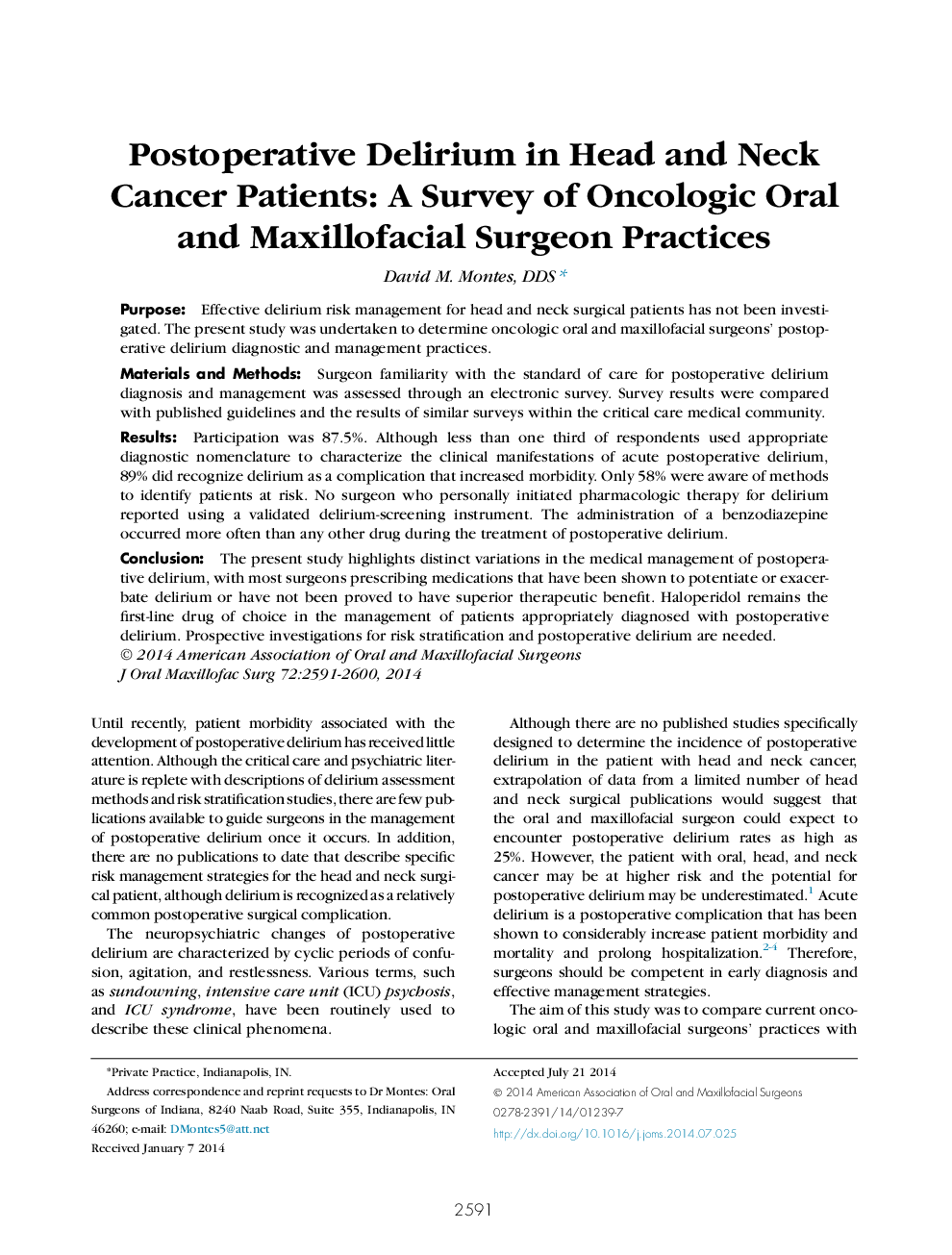| Article ID | Journal | Published Year | Pages | File Type |
|---|---|---|---|---|
| 3152717 | Journal of Oral and Maxillofacial Surgery | 2014 | 10 Pages |
PurposeEffective delirium risk management for head and neck surgical patients has not been investigated. The present study was undertaken to determine oncologic oral and maxillofacial surgeons' postoperative delirium diagnostic and management practices.Materials and MethodsSurgeon familiarity with the standard of care for postoperative delirium diagnosis and management was assessed through an electronic survey. Survey results were compared with published guidelines and the results of similar surveys within the critical care medical community.ResultsParticipation was 87.5%. Although less than one third of respondents used appropriate diagnostic nomenclature to characterize the clinical manifestations of acute postoperative delirium, 89% did recognize delirium as a complication that increased morbidity. Only 58% were aware of methods to identify patients at risk. No surgeon who personally initiated pharmacologic therapy for delirium reported using a validated delirium-screening instrument. The administration of a benzodiazepine occurred more often than any other drug during the treatment of postoperative delirium.ConclusionThe present study highlights distinct variations in the medical management of postoperative delirium, with most surgeons prescribing medications that have been shown to potentiate or exacerbate delirium or have not been proved to have superior therapeutic benefit. Haloperidol remains the first-line drug of choice in the management of patients appropriately diagnosed with postoperative delirium. Prospective investigations for risk stratification and postoperative delirium are needed.
